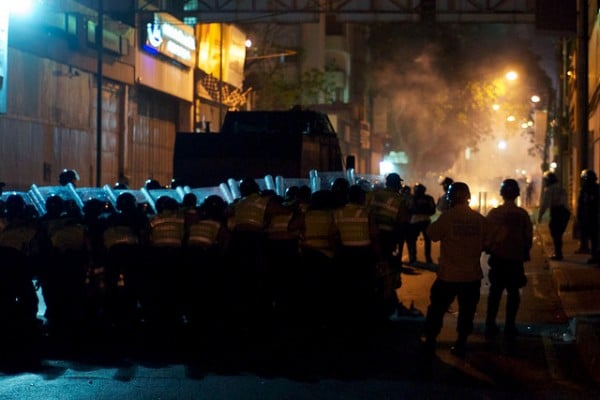
Photo Credit: andresAzp, via Flickr
It is interesting to see the current commentary on ISIS/ISIL in Iraq and how policymakers and the mainstream media have reported on a situation that is confusing and complicated. In reality, the suppression of the 2009 election in Iran lead to a violent response to protestors in Syria, leading to a dithering policy on Syria that has opened the gates to the current situation. Policy over the last seventy years has failed to prevent the worst case scenario, and it is only moves to prevent the further use or chemical weapons and the infusion of nuclear weapons. Responses from media organizations have focused on how Western countries feel as opposed to what is occurring to people in Iraq and in Syria. Opinion media has lost the fundamentals of reporting, and information has been sparse on the ground. Media that claims to represent those living in the region are often state controlled — one of the best propaganda tools possible to justify a government’s violent responses.
It is disappointing that those free journalists from the region have no forum to voice their opinions. I still await a perspective from someone who lives and works in Iraq, as Western media has yet to put a notable expert from the region in one of their mainstream broadcasts. It could be that the reality of the situation coming from the voice of someone from there might allow for information that would paint Western countries into a corner to morally and legally to react. Media is best when it is free and comes from someone who does not have the option of pulling out of their own country. With real knowledge comes the ability to predict and respond successfully to complicated situations. Complication does not justify a lack of action, poor intelligence nor justify human rights abuses.
One country that is crucial to world oil prices and how western economies will fare financially is Venezuela. The current political deadlock in Venezuela has been going on for over a year but has been largely ignored in mainstream media in favor of conflicts in Eastern Europe and the Middle East. Venezuela’s leftist government has been taken in the same direction under President Nicolas Maduro as it had under the late Hugo Chavez, but citizen protests over the last two years have put the Maduro government on its heels. With a rising cost of living, increased crime and debt being felt by citizens in Venezuela, poor economic choices and a dependence on oil without prudent financial controls has left Venezuela’s economy in an economic “complication” that has been met with violence and suppression against citizens and the opposition movements in the country. Investors that would normally flock to invest in Venezuela’s petroleum prize lack sound information and may have their funds used to enforce the Maduro government and suppress citizens movements in the country. The lack of a focused policy to deal with Venezuela’s deadlock will lead to a guaranteed economic or political collapse if not addressed. If a policy approach would take shape, it requires a thorough analysis on the ground as a poor decision can be just as harmful as avoiding any response at all.
Assessing Venezuela’s current situation should reflect the importance of the OPEC nation to the world economy. With the heart of world oil production currently in a transformative war, Venezuela is more important than ever. I was informed recently of a show on Venezuela that would show both sides of their local conflict. Sebastian Walker hosts a show called Fault Lines that produced a short documentary called “Venezuela Divided,” which aired on Al Jazeera America this past Saturday. In the program they go into the country and spoke to supporters of Maduro and protestors against the government in Venezuela in order to understand the divisions and provide a perspective on the real situation on the ground in Caracas and in Venezuela.
Balancing views on a situation from people who live and cannot escape the results of policy decisions is something that has been lacking in the narrative of the modern Middle East. Whether there are boots on the ground or not, the effect of a fallen Iraq or a paralyzed Venezuela will always be felt to some degree in Western countries. It is the duty of media to acknowledge these events with information first, leading to a balanced and informed opinion gained from local and free sources in those regions they cover.